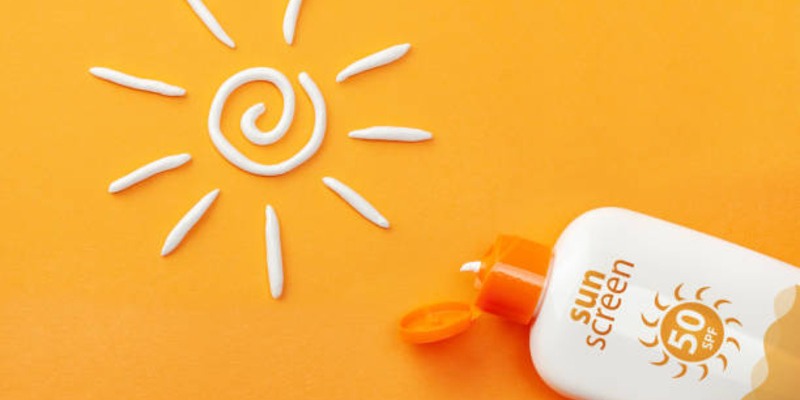Sun Protection Shelf Life: Understanding Sunscreen Expiry
Mar 06, 2024 By Madison Evans
When it comes to protecting our skin from the harmful rays of the sun, sunscreen plays an essential role. However, like many other skincare products, sunscreen doesn't last forever. Its efficacy can diminish over time, making it less effective at shielding your skin from UV radiation. This guide, titled "Sun Protection Shelf Life: Understanding Sunscreen Expiry," is designed to shed light on the importance of paying attention to the expiration dates of sun protection products. Well explore why sunscreen expires, how to identify an expired product, and the potential risks of using sunscreen past its prime. This essential read aims to enhance your sun safety practices by ensuring you're fully informed about the longevity and optimal use of your sunscreen to maintain skin health.
Why Sunscreen Expires?
Sunscreen can expire for several reasons, including:
- Exposure to heat: Sunscreen should be stored in a cool and dry place. If exposed to excessive heat, the active ingredients in sunscreen can become unstable and lose their effectiveness.
- Exposure to air: Oxygen can also cause sunscreen ingredients to break down over time, making them less effective at protecting your skin.
- Time: Just like any other product, sunscreen has a shelf life and degrades with time. The expiration date on the packaging indicates when the sunscreen is expected to lose its efficacy.
- Contamination: Using dirty hands or leaving the bottle open can introduce bacteria into the product, rendering it ineffective.
How to Identify an Expired Sunscreen?

Using an expired sunscreen can not only put your skin at risk but also lead to a false sense of security. Here are some signs that can help you identify if your sunscreen has expired:
- Changes in color or consistency: If the sunscreen has changed color or become separated, it's likely expired.
- Strange odor: If your sunscreen smells different than when you first purchased it, it may have gone bad.
- Expired date: Always check the expiration date on the packaging. If it has passed, it's time to replace your sunscreen.
Risks of Using Expired Sunscreen:
Continuing to use an expired sunscreen can have consequences for your skin health. Here are some potential risks:
- Reduced sun protection: The active ingredients in sunscreen can become less effective, resulting in inadequate sun protection.
- Skin irritation: As sunscreen degrades, it can cause skin irritation and allergic reactions.
- Sunburns: Using an expired sunscreen can increase your risk of getting sunburnt since the product is no longer providing adequate protection against UV rays.
How to Prolong the Shelf Life of Your Sunscreen?
To ensure you get the most out of your sunscreen and maximize its shelf life, here are some tips to keep in mind:
- Store it properly: Keep your sunscreen in a cool and dry place, away from direct sunlight.
- Check the expiration date: Always check the expiration date on the packaging before using sunscreen. If it has passed, discard it and purchase a new one.
- Follow the instructions: Always follow the instructions on the packaging, including how often to reapply and how much to use.
- Don't share sunscreen: Sharing sunscreen can lead to cross-contamination, so it's best to have individual bottles for each person.
Proper Storage to Extend Shelf Life:

To prolong the shelf life of your sunscreen, proper storage is crucial. Here are some tips:
- Always keep it in a cool and dry place.
- Don't leave it in a hot car or near heat sources like stoves or radiators.
- Avoid exposing it to direct sunlight.
- Keep the lid tightly closed when not in use.
Proper storage of sunscreen is crucial to maintain its effectiveness and extend its shelf life. Here are key tips to ensure your sunscreen remains potent for as long as possible:
- Avoid High Temperatures: Don't leave your sunscreen in places that are prone to high temperatures, such as in a car during a hot day. Instead, store it in cooler, shaded areas.
- Minimize Exposure to Air: Make sure the cap is tightly closed after each use to prevent air from entering the container, which can degrade the active ingredients over time.
- Keep Away from Direct Sunlight: Store your sunscreen in a cabinet or a bag when outdoors to protect it from direct sunlight, which can affect its formulation and efficacy.
- Consider Refrigeration: In very hot climates, storing sunscreen in the refrigerator can help preserve its active ingredients, especially for natural or organic formulations that may be more sensitive to temperature changes.
- Regular Usage: Using sunscreen regularly is also a form of ensuring it doesn't go to waste. Apply it as part of your daily skincare routine to ensure youre both protected and making the most out of your product before its expiry.
Disposing of Expired Sunscreen:
When your sunscreen has reached its expiration date or shows signs of being expired, it's time to dispose of it properly. Here are some tips on how to do so safely:
- Don't pour it down the drain: Sunscreen can contain harmful chemicals that can harm aquatic life, so avoid disposing of it in the sink or toilet.
- Check local guidelines: Some cities have specific guidelines for disposing of personal care products, including sunscreen. Check with your local authorities to determine the proper way to dispose of it.
- Recycle: If your sunscreen comes in a plastic container, you can check with your local recycling center to see if they accept it. Make sure to rinse out the container before recycling.
Conclusion:
Using sunscreen is crucial for protecting our skin from the sun's harmful UV rays. However, it's essential to be aware of the expiration date and signs of an expired sunscreen. By following proper storage and disposal methods, we can ensure that our sunscreen remains effective and continue to protect us from the sun's damaging effects. Remember to always read the instructions on the packaging and regularly check for any changes in color, consistency, or odor. When in doubt, it's best to replace your sunscreen and invest in a new one to keep your skin safe and healthy.







